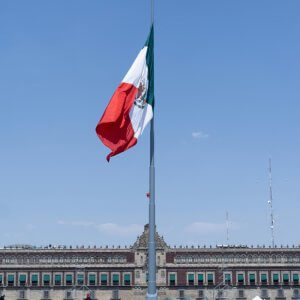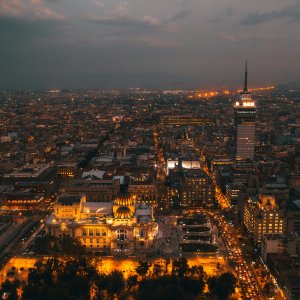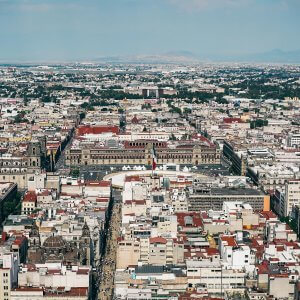Smallholder Farmers in Semi-Arid RegionsOne of the hardest-to-reach groups for climate action in Mexico are smallholder farmers (campesinos) in semi-arid and drought-prone regions such as Zacatecas, Chihuahua, Durango, San Luis Potosí, and parts of Oaxaca and Guerrero.According to Mexico’s agricultural census (INEGI Censo Agropecuario 2022), there are nearly 4.8 million agricultural production units, and about...
Author: Pablo David Necoechea Porras (Pablo David Necoechea Porras)
Mexico: The Politics of Climate Change
Overall, public support for climate policies exists but must be balanced with social equity considerations. Mexico, as one of the largest economies in Latin America, faces significant challenges in managing its greenhouse gas (GHG) emissions. Political forces play a central role in determining how effectively the country addresses climate change. These forces include political leadership,...
Mexico: Nuclear Energy Updates
Nuclear energy accounts for between 3% and 5% of Mexico’s total electricity generation. The high upfront costs and long construction times have been a significant barrier to expanding its nuclear capacity.In the global push for a cleaner and more sustainable energy future, nuclear power continues to be a topic of intense debate. For Mexico, nuclear...
Mexico: What Recent Climate Polling Tells Us
In 2024, 77 % of Mexicans report increased worry over climate change compared to the previous year, placing Mexico fourth worldwide in terms of rising concern.As the Country Manager for Mexico at Climate ScoreCard, I have reviewed the latest polling data and public opinion research to assess the views of Mexican citizens on climate change, renewable...
Mexico: 2025 Mid-Year Emissions Report Card
An updated climate strategy aims to achieve a 35% reduction in emissions by 2030 through initiatives focused on reforestation, renewable energy, and sustainable agriculture. Mexico has made policy advances, but it must address its entrenched fossil-fuel dependency to achieve meaningful emission reductions. The groundwork is being laid, but stronger action is needed to meet climate...
Roadmaps for the Future: Mexican Climate Experts on What Needs to Be Done
Dr. Rodolfo Lacy Tamayo: Architect of Sustainable Solutions for Mexico and Beyond As the world faces a pivotal moment in the fight against climate change, nations like Mexico find themselves at the crossroads of challenge and opportunity. Despite ambitious goals, global progress on emissions reduction has slowed, and Mexico is no exception. To reignite momentum...
Indigenous communities in rural areas, urban populations in informal settlements, and agricultural workers in regions like Chiapas, Oaxaca, and Guerrero are most at risk in Mexico
In the fight against climate change, climate justice stands as a beacon of hope and fairness. It reminds us that the transition to a sustainable future must include everyone, especially those who are often left behind. Mexico, with its rich cultural diversity and vast natural resources, has an incredible opportunity to lead by example, ensuring...
Integrating Mexico’s NbS into National Climate Policies and Long-Term Strategies Ensures these Solutions Remain a Priority in Addressing Climate Change
As climate change becomes an increasingly urgent challenge, nature-based solutions (NBS) are proving to be a valuable strategy to address it. These solutions, which include restoring ecosystems, enhancing biodiversity, and naturally capturing carbon emissions, hold tremendous promise for countries like Mexico. With its vast ecological diversity, Mexico is uniquely positioned to leverage NBS to combat...
Mexico’s Ongoing Investments in Electrification and Infrastructure Expansion Pave the Way for a More Sustainable and Accessible Public Transport System
This text analyzes the amount and type of automated public transport used daily by citizens of Mexico. By automated public transport in Mexico, we are referring mainly to buses and trains. Automated public transport plays an essential role in the daily lives of millions of people in Mexico, particularly in densely populated urban areas such...
By 2035, Mexico Aims to Phase Out Fossil Fuel-Dependent Vehicles
As of January 2025, Mexico’s electric vehicle (EV) sector has experienced significant growth, reflecting a broader global transition toward sustainable transportation. This report provides an overview of the current state of EV adoption, compares data from five years ago, and provides projections for the next decade. Key aspects analyzed include the number of EVs on...











